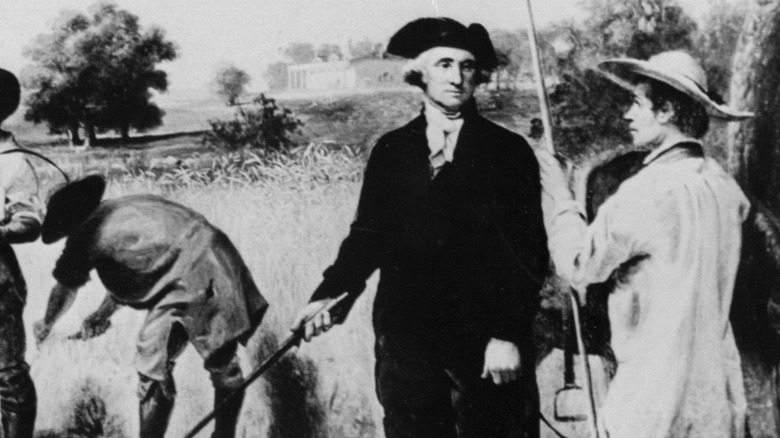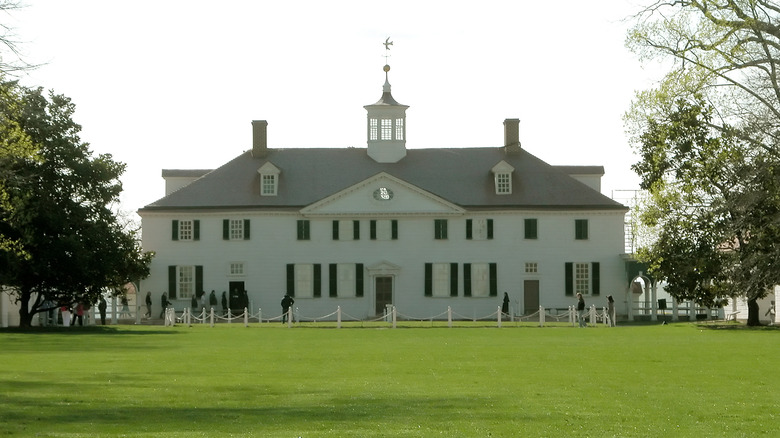The Shady Way George Washington Kept Slaves His Entire Life
George Washington, America's first president, was a slave owner like many of his fellow Founding Fathers and many other wealthy farmers of his time. Washington spent most of his life around slaves. According to Smithsonian Magazine, he had already inherited slaves as a child, and relied on their labor for his valuable Mount Vernon property and estates in Virginia. When first elected president, Washington resided in New York City, followed by Philadelphia, Pennsylvania. He took slaves with him to serve in his presidential residences in those two cities.
The states of New York and Pennsylvania began to restrict the use of slaves nearly a century before the Civil War. Washington utilized legal loopholes to keep enslaved peoples in bondage.
The year 1780 saw Pennsylvania pass the General Abolition Act, which automatically freed enslaved people who lived in the state for half a year, along with any enslaved person over the age of 28. Washington's solution to losing his slaves was to rotate their service. He would send them back to his estate, Mount Vernon in Virginia, every six months, just before they were due to earn their freedom. When the slaves returned to Pennsylvania, the six month timer reset and Washington could continue to keep them as property.
Slaves escaped from Mount Vernon
According to Mount Vernon, Washington's estate (pictured above) utilized over 300 slaves at the time of the president's death. Over 120 belonged to Washington personally; the rest came from his wife Martha's first marriage. It was not uncommon for slaves to try to escape from Mount Vernon. Seventeen successfully stowed away on a ship during the American Revolution, as did Martha's personal maid, a 22-year-old named Ona Judge, who had been chosen to be sent away as a wedding present.
Judge escaped and fled to New Hampshire, sparking a three-year hunt. Washington assumed that some insider had convinced young Judge to escape, rather than her deciding to seek freedom herself. Judge was never caught, and lived as a married freewoman in New England.
Washington eventually softened his stance on slavery in his later years, and wrote in his will that all of his family's slaves should be freed upon the death of Martha. Yet his conniving abuse of a legal loophole, kept secret from all but his wife and most trusted secretary, shows the darker side of one of America's most beloved historical figures.

